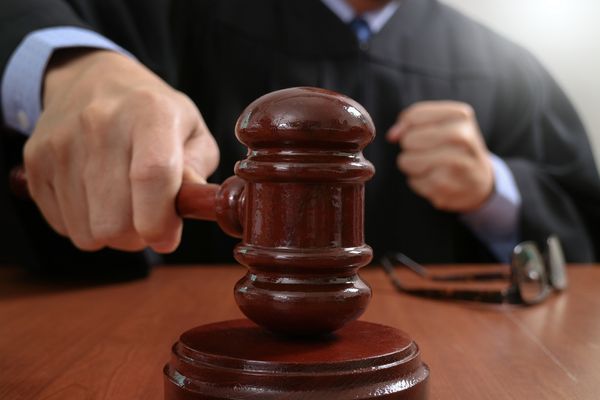4.3.1
Modern Britain Case Studies
Conscientious Objectors During War
Conscientious Objectors During War
Conscientious Objectors became a new crime in the twentieth century following the outbreak of World War I in 1914.


Recruiting for WW1
Recruiting for WW1
- In 1914, people were queuing up to join the army and fight in World War I.
- However, by 1916 the number of volunteers had reduced, largely due to the reports from the frontline and the rising numbers of casualties.
- As a result of the reduction in volunteers, the British Government introduced conscription.
- All men aged between 18 and 41 were required to enlist.
- Initially, this was all single men but it soon extended to married men too.


Conscientious Objectors
Conscientious Objectors
- As many as 16,000 men refused to enlist as they were Conscientious Objectors.
- They refused to fight mainly on moral grounds.
- They often cited religious reasons to support their refusal.
- These men were frequently accused of cowardice.
- They were often made to wear a white feather and sometimes even beaten in the streets by others.


Punishing Conscientious Objectors
Punishing Conscientious Objectors
- Special tribunals were set up to hear the cases of CO’s.
- Often the people that heard the case at the tribunal were retired soldiers and as a result, were not sympathetic.
- Many convicted CO’s were placed in prison, where they undertook hard labour and a long sentence.


Conscientious Objectors in WW2
Conscientious Objectors in WW2
- By World War 2, the treatment of CO’s had changed a little.
- Tribunals would still hear the case but often those convicted would be found alternative non-combat roles to fight the war.
- For example, working on farms or working within the munitions industry.
Derek Bentley and the End of Capital Punishment
Derek Bentley and the End of Capital Punishment
Bentley was sentenced with the death penalty in 1953. His death was a flashpoint which highlighted society's growing hostility towards capital punishment.


Derek Bentley
Derek Bentley
- Bentley was hanged for the murder of a police officer in 1953.
- Bentley suffered from epilepsy and severe learning difficulties, as a result, he struggled to find work and make friends.


Bentley's and PC Miles
Bentley's and PC Miles
- In 1952 Bentley and Chris Craig were burgling a warehouse in London. Craig was carrying a gun and Bentley a knife. The police arrived and the pair were caught on the roof.
- The police officer asked Craig to hand over the gun and Bentley is reported to have shouted ‘Let him have it Chris’.
- Craig fired at the officer injuring his shoulder.
- More officers arrived on the roof and Craig fired again killing PC Miles.


Punishment for Bentley and Craig
Punishment for Bentley and Craig
- Both Bentley and Craig were charged with murder.
- Craig was under 18 and therefore was too young to hang for murder but Bentley would face the death penalty if found guilty.
- The phrase ‘Let him have it’ caused controversy as it was claimed that Bentley could have meant Craig to hand over the gun not actually shoot the weapon.


Controversy over Bentley's punishment
Controversy over Bentley's punishment
- Despite not actually firing the weapon Bentley was found guilty and sentenced to death.
- Many wondered whether he should actually have stood trial due to his low intelligence and learning difficulties.
- There was public outcry at the sentence and people called for a pardon or reduction in sentence.
- This was refused and Bentley hanged. Many believed this to be a miscarriage of justice.
- The whole principle of the death penalty looked cruel and outdated and the case fuelled campaigns against capital punishment.
1Medieval England, 1000-1500
1.1Changing Definition of Crime in Medieval England
1.2Nature of Law Enforcement & Punishment
1.3Case Studies From 1000-1500
2Early Modern England, 1500-1700
2.1Changing Definitions of Crime
2.2Nature of Law Enforcement & Punishment
318th & 19th Century Britain
3.1Changing Definition of Crime in Industrial Britain
3.2Nature of Law Enforcement & Punishment
4Modern Britain, 1900-Present
4.1Changing Definition of Crime in Modern Britain
4.2Nature of Law Enforcement & Punishment
5Whitechapel Local Study
5.1The Geographical Area & Living Conditions
5.2The People of Whitechapel
5.3Policing in Whitechapel
5.3.1The Police Force in Whitechapel
5.3.2Jack the Ripper
5.3.3Challenges Facing the Police
5.3.4End of Topic Test - Policing in Whitechapel
5.3.5Grade 9 - Policing Whitechapel
5.3.6Diagnostic Misconceptions - Professional Police
5.3.7Diagnostic Misconceptions - Jack the Ripper
5.3.8Diagnostic Misconceptions - Vigilance Committee
5.3.9Diagnostic Misconceptions - Rundown Whitechapel
Jump to other topics
1Medieval England, 1000-1500
1.1Changing Definition of Crime in Medieval England
1.2Nature of Law Enforcement & Punishment
1.3Case Studies From 1000-1500
2Early Modern England, 1500-1700
2.1Changing Definitions of Crime
2.2Nature of Law Enforcement & Punishment
318th & 19th Century Britain
3.1Changing Definition of Crime in Industrial Britain
3.2Nature of Law Enforcement & Punishment
4Modern Britain, 1900-Present
4.1Changing Definition of Crime in Modern Britain
4.2Nature of Law Enforcement & Punishment
5Whitechapel Local Study
5.1The Geographical Area & Living Conditions
5.2The People of Whitechapel
5.3Policing in Whitechapel
5.3.1The Police Force in Whitechapel
5.3.2Jack the Ripper
5.3.3Challenges Facing the Police
5.3.4End of Topic Test - Policing in Whitechapel
5.3.5Grade 9 - Policing Whitechapel
5.3.6Diagnostic Misconceptions - Professional Police
5.3.7Diagnostic Misconceptions - Jack the Ripper
5.3.8Diagnostic Misconceptions - Vigilance Committee
5.3.9Diagnostic Misconceptions - Rundown Whitechapel
Unlock your full potential with Seneca Premium
Unlimited access to 10,000+ open-ended exam questions
Mini-mock exams based on your study history
Unlock 800+ premium courses & e-books